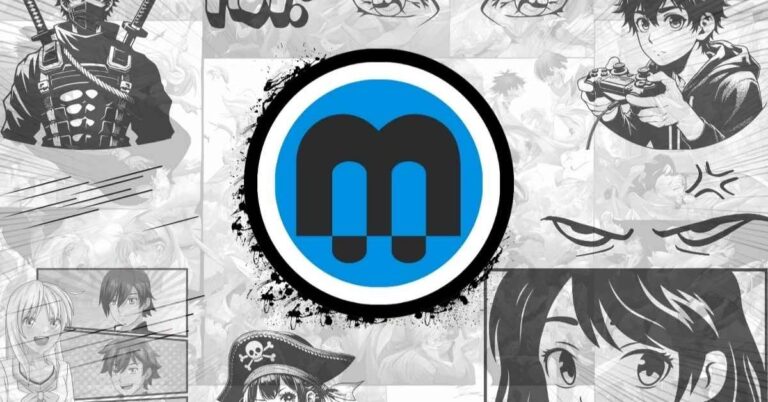Would You Consider a Manga Reader to Be an Avid Reader/True Reader?
The question “Would you consider a manga reader to be an avid reader/true reader?” often sparks debate among book lovers, educators, and casual readers. While traditional literature is often hailed as the gold standard of reading, the popularity of manga—a Japanese graphic novel form that combines visuals with text—challenges that narrow viewpoint. With growing global fandoms, millions of manga chapters read daily, and intellectual themes embedded in popular titles, it’s time to assess manga’s place in the world of reading.
Understanding the Modern Definition of an Avid Reader
Traditionally, an avid reader is someone who reads frequently, consistently, and with genuine interest. But what qualifies as valid reading material? Is it limited to classic novels and academic texts? Or does the definition evolve with changing media?
To answer the key question—Would you consider a manga reader to be an avid reader/true reader?—we must first recognize that literacy is no longer constrained to black-and-white text blocks. Reading today includes eBooks, audiobooks, graphic novels, and yes—manga.
Manga as a Form of Literature
Manga isn’t just pictures and speech bubbles; it’s a rich form of storytelling. Series like Death Note, Naruto, Berserk, and Monster explore complex themes like morality, war, love, philosophy, trauma, and justice. These narratives often rival or even surpass many modern novels in depth and character development.
So Would you consider a manga reader to be an avid reader/true reader? If you define reading as engaging with a structured narrative, interpreting context, understanding themes, and following character arcs—then yes, without a doubt.
Also Read: Where Do I Read Blue Lock Manga?
The Literacy Benefits of Reading Manga
Studies and educational experts now confirm that manga helps develop essential literacy skills:
- Reading comprehension: Readers must connect images with dialogue and narration to fully understand the story.
- Vocabulary building: Many English-translated manga include cultural or linguistic footnotes, helping readers learn new words.
- Inference and critical thinking: Since manga often relies on “showing” rather than “telling,” readers practice inference more than with traditional novels.
In this context, Would you consider a manga reader to be an avid reader/true reader? Absolutely. Manga trains the brain in literacy just as well—if not better—than some forms of traditional literature.
Visual Learning and Reader Engagement
A large number of readers are visual learners. Manga offers an effective gateway into the world of books for individuals who might find long prose intimidating or dull. The mix of visuals and text maintains interest, particularly for young readers or those with reading challenges.
According to research shared by educational platforms like ScholarWorks and Medium, many students labeled as “reluctant readers” found their passion for reading through manga. Hence, Would you consider a manga reader to be an avid reader/true reader? For these students, manga was the bridge to lifelong reading.
Time Commitment and Dedication of Manga Readers
One of the biggest misconceptions is that manga is “easy” reading. In reality, many manga series span hundreds of chapters. For example, One Piece has over 1,000 chapters and Detective Conan exceeds 100 volumes. This requires consistent dedication, focus, and emotional investment over years.
So again, Would you consider a manga reader to be an avid reader/true reader? If we define avid readers by their time investment, then manga readers surely qualify.
Also Read: Where Can I Read One Piece Manga?
Diverse Genres in Manga Foster Broader Reading Horizons
Manga spans every genre imaginable—romance, science fiction, political thrillers, historical dramas, horror, fantasy, slice-of-life, and educational content. This variety often leads readers to explore other formats like light novels, Japanese literature, Western comics, and full-length novels.
Thus, when people ask Would you consider a manga reader to be an avid reader/true reader? they often overlook how manga fosters a multi-genre reading habit.
Reading for Pleasure and Mental Health
Reading—regardless of format—is scientifically proven to reduce stress, enhance empathy, and improve cognitive function. Manga’s compelling visuals, emotional resonance, and cliffhangers make it highly engaging, which keeps readers returning consistently.
In this light, Would you consider a manga reader to be an avid reader/true reader? becomes less of a question and more of a reaffirmation of the legitimacy of different reading experiences.
Cultural Literacy Through Manga
Manga often includes traditional Japanese values, customs, and idioms, offering a cultural education along with entertainment. For global readers, this means exposure to international perspectives and cross-cultural empathy.
In global classrooms, manga is now being used as a teaching tool. Teachers use it to engage students in world history, social issues, and language learning. If cultural insight is a hallmark of an “avid reader,” then yes—Would you consider a manga reader to be an avid reader/true reader?—they certainly meet that criterion.
Do Other Readers Acknowledge Manga Readers?
According to Reddit threads, Quora discussions, and forums like OnlineBookClub, many traditional readers still hesitate to place manga on the same pedestal as literature. However, these platforms also feature hundreds of people defending manga as legitimate reading.
Reddit user feedback strongly supports the idea that manga readers are indeed passionate, engaged, and knowledgeable—key traits of avid readers. So Would you consider a manga reader to be an avid reader/true reader? The public consensus is increasingly leaning towards “yes.”
Graphic Novels vs. Manga: A Comparative Insight
Graphic novels and manga share many features, yet manga offers serialized storytelling, deep character arcs, and long-term engagement. While both mediums foster visual literacy, manga’s pacing and cultural depth give it a unique identity.
Comparing them highlights that the format shouldn’t define the reader’s seriousness—intent and engagement do. So Would you consider a manga reader to be an avid reader/true reader? If you consider graphic novel readers valid, manga readers deserve equal recognition.
Manga as a Gateway to Other Books
Many manga fans eventually dive into Japanese light novels or explore the original books that inspired their favorite anime. Some go on to read translations of Haruki Murakami, Yukio Mishima, or delve into Japanese history and language textbooks.
Hence, Would you consider a manga reader to be an avid reader/true reader? When manga fosters lifelong curiosity and a deeper reading habit, the answer becomes undeniably affirmative.
Manga in Education and Libraries
Educators now stock manga in libraries and include it in curriculum reading lists. Manga adaptations of classics—like Les Misérables, The Count of Monte Cristo, or The Tale of Genji—bridge gaps between classical literature and new readers.
With institutional backing and proven educational value, Would you consider a manga reader to be an avid reader/true reader? has been answered in practice by many schools and libraries already.
Digital Evolution of Manga Reading
With the rise of platforms like Manga Plus, Shonen Jump App, and Comixology, digital manga has become accessible globally. Just like eBooks revolutionized how we read novels, digital manga has expanded the reach of this storytelling medium.
As digital reading is now universally accepted, Would you consider a manga reader to be an avid reader/true reader? must be answered with inclusivity, acknowledging evolving tech-driven reading habits.
Manga’s Role in Language Acquisition and Multilingual Literacy
One often-overlooked benefit of manga reading is its impact on language acquisition, especially among readers studying Japanese or English as a second language. Manga frequently includes untranslated terms, honorifics, and cultural expressions that encourage readers to explore vocabulary outside their native tongue. For instance, terms like senpai, arigatou, and itadakimasu become familiar to readers, prompting interest in learning Japanese or improving English through translated context. In this light, Would you consider a manga reader to be an avid reader/true reader? certainly applies, as these readers engage not only in storytelling but also in expanding their linguistic competence—something many traditional readers may not regularly experience.
The Psychological Engagement and Emotional Intelligence in Manga Reading
Manga often explores complex emotional journeys, trauma, mental health, identity, and social conflict in ways that foster empathy and emotional intelligence. Unlike traditional novels that describe emotions through prose, manga illustrates them visually—through expressions, symbols, and layout design—which intensifies the reader’s emotional connection to characters. This psychological engagement enhances a reader’s ability to interpret emotions and perspectives, making them more emotionally literate. So, Would you consider a manga reader to be an avid reader/true reader? If emotional depth and human connection are markers of meaningful reading, then the answer is an emphatic yes.
Building Communities and Critical Discussion Through Manga Fandoms
Manga readers are not isolated. They often participate in online communities, book clubs, YouTube discussions, and even academic forums analyzing plot development, character growth, or cultural relevance. This shared discourse mirrors literary discussions around novels and poetry, showing that manga reading is not passive entertainment but a socially and intellectually engaged practice. From writing fan theories to publishing blog reviews, manga readers demonstrate interpretive thinking and critique, much like any book club participant. So when we ask, Would you consider a manga reader to be an avid reader/true reader? their contribution to literary discourse provides a clear answer.
Collecting, Archiving, and Valuing Manga as Literary Artifacts
Many manga readers go beyond casual reading and treat manga volumes as collectible literary art. These individuals curate libraries, maintain special editions, follow specific mangaka (manga authors), and appreciate the artistic styles that evolve across series. The dedication mirrors how classic book lovers collect first editions or annotated versions of novels. This practice of collecting and valuing manga as literary and cultural artifacts is a strong testament to reader devotion. Thus, Would you consider a manga reader to be an avid reader/true reader? must be answered with respect—these readers honor literature in a visual and archival form, proving their passion runs deep.
Conclusion: The Final Verdict
After evaluating the role of manga in literacy, engagement, time investment, and emotional depth, one can confidently say that manga readers exhibit all characteristics of avid or true readers. They read consistently, seek emotional and intellectual depth, and often branch into other literary worlds.
So Would you consider a manga reader to be an avid reader/true reader? The answer, supported by educators, psychological studies, and real-world testimonials, is a resounding yes.
Also Read:
- The Perfect Plan for a Fairy-Tale Ending Manga: A Complete Review and Reader’s Guide
- The Baby Fairy is a Villain Manga: A Twisted Fantasy Worth Reading
- Review About The Ogre’s Bride Manga: A Deep Dive Into Fantasy, Romance, and Folklore
- The Baby Fairy Is a Villain Manga: A Dark Fantasy Worth Your Attention
- Would You Consider a Manga Reader to Be an Avid Reader/True Reader?






